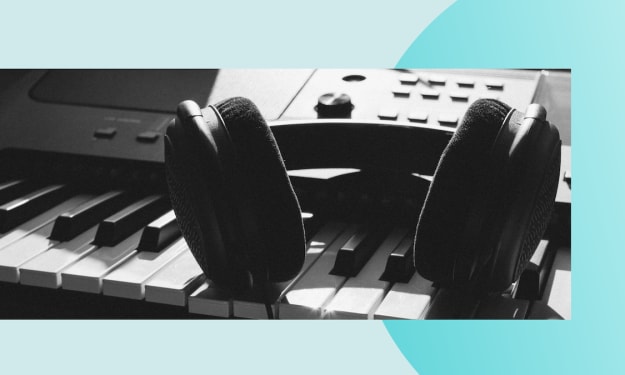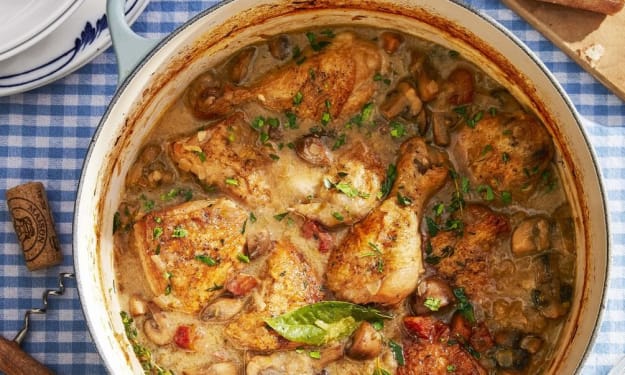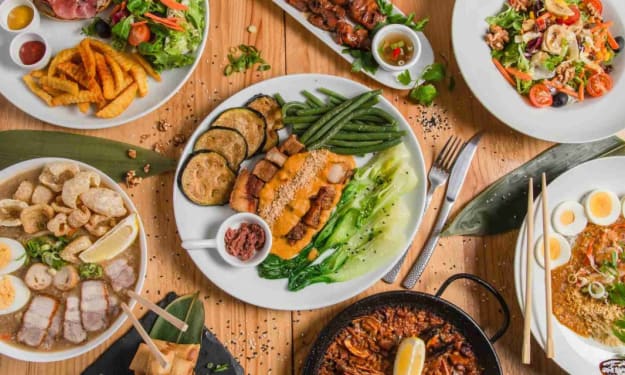Finding Food Freedom
Resolving To Break Free From The Past

“I’ve never had one of these before!” I remark aloud, staring at the perfect, delicious, brightly-colored donuts sitting in a box in front of me. “You’ve never had a donut?!” I could hear multiple tones blended in her retort; surprise, bewilderment, mockery, entitlement. I felt shame wash over my body like one of those big waves that crash on top of me at the beach. I could tell me never having had a donut was seen as weird or different, maybe even a bit sad. I despised feeling like an outsider, even in small ways.
“My mom just likes us to eat healthy food, and I go to a school that encourages eating organic and stuff…” I mutter quietly, before grabbing a donut and taking a big bite, feeling relief and pleasure seep through my body at the first taste. That moment at summer camp in elementary school has stayed with me all these years.
“Healthy” food was almost like a fifth member of our household growing up, morphing and changing shapes and meaning through the years. My great-grandma had taught my mom how to cook and bake, using only the “best” ingredients. “She always told me, if you don’t recognize or can’t pronounce the ingredients on the label, don’t buy it!” My mom would tell my sister and me, signaling that “processed” or “junk food” was like its own form of evil. “My grandma was the first person to bake and sell wheat bread in Austin! Everyone else was still eating white bread.” My mom would tell us proudly, with an air of disgust when she said the word white.
By the time I was in high school, an unofficial list of dos and don’ts around food forever seared in my brain:
- Never eat white bread
- Don’t eat too much sugar
- Drinking soda is bad for you
- If you’re hungry, eat an apple or some almonds
- Don’t snack after dinner
- Only buy “organic” foods at the store
High school brought a new beast, the sister of “healthy eating”: “healthy weight”. My dad went on a diet with a strict weight loss goal in mind. Because he was on a diet, suddenly it felt like the whole family was forced to be on the same diet. I was fourteen. We ate oatmeal for breakfast every single day for at least a year. To this day, I cannot stand oatmeal. When I quit the basketball team at the end of ninth grade, my parents suggested I get a personal trainer at the gym to help me “maintain my weight.” I was fifteen. As college grew nearer, my parents warned me of the perils of “the freshman fifteen” and how as I grew older, I wouldn’t be able to just “eat whatever I want” anymore.
I finished my freshman year of college with a 4.0 GPA, a member of the Dean’s Honor’s List. But the biggest accomplishment I felt, within myself, was that my weight had stayed the same. I managed to stave off the dreaded “freshman fifteen”. I was a winner. I was worthy. I was making my parents proud in more ways than one. Never mind the fact that I’d counted my calories and eaten salads for dinner most nights and drank smoothies after a workout and exercised a certain number of times per week. Instead of just enjoying my first year of college, I’d made sure everything was perfect. My grades, my body. It all had to be perfect.
The strict rules and control I had around food and weight all caught up to me at once, my junior year of college. I was tired of doing everything “perfectly.” I wanted to experience the high I’d felt after biting into my first donut at summer camp. I was living off-campus and buying my groceries for the first time in my life, and the power I felt caused me to leap to the other end of the spectrum from the extreme “healthy lifestyle” of my youth. I bought all my favorite junk food at the store, eating it in secret away from my roommate in my bedroom like I was starving and it was the last food on earth. There were days when I felt so sad and alone, and eating gave me some kind of temporary comfort. I think this is when I developed a connection in my brain between sadness, stress, anxiety, and food. I began using food as a form of self-soothing, to try to cope with my emotions. I stopped exercising. I just wanted to be free from the restraints I’d felt thrust on me by my parents as a child and teen, and then by myself in my early years of college. I was looking for control and freedom, but what I found was the opposite.
Where the strict rules around food and exercise had held me back, my newfound lack of rules was holding me back just as much. I wasn’t taking care of my body, and my mental and physical health was suffering. I felt out of control around food, like I couldn’t even stop myself from eating after I registered, “I’m full.” This vicious cycle of binging continued for years after college, and it wasn’t until last year that I finally made the effort to heal my relationship with food and my body.
I’ve made great strides with my eating and exercise habits over the past year, but I know I still have a long way to go. Those messages from my childhood around “good food” and “bad food” still haunt me. I still feel shame when I eat something “bad.” I still punish myself by stuffing my body with food when I’m not even hungry, or not allowing myself the appropriate amount of nutrients in a given day. I want to work on completely healing my relationship with food, and continue down a positive path in 2022.
Instead of making a resolution that focuses on negativity or how other people view me, such as trying to lose weight or eat a certain diet, I’ve decided to focus my resolution on simply taking care of myself, for the first time in my life. I’m learning more about “intuitive eating”, the culture of “body positivity”, and the difference between “emotional hunger” versus “physical hunger.” I’m vowing to take the time to figure out what works for me instead of what my mom or my dad or social media tells me I should or shouldn’t be doing for my health.
What feels good for my body? How many times a week do I want to exercise? Am I actually craving chocolate, or am I craving human connection? These are the types of questions I’m asking, and I’m hoping to find the answers within myself this year instead of relying on what others tell me. Only I know what is best for me.
About the Creator
Shelly Crossland
I'm passionate about telling stories around mental health, personal growth, and relationships.







Comments
There are no comments for this story
Be the first to respond and start the conversation.